How to Optimize Your Therapy Website for Google

As a therapist in private practice, attracting new clients is essential for growing your business. With more and more people searching for mental health services online, having a strong digital presence is crucial. However, simply having a website isn’t enough. To get in front of potential clients, you need to optimize your site for search engines like Google.
This is where Search Engine Optimization (SEO) comes in. SEO is the process of improving your website’s visibility and ranking in search engine results pages (SERPs). When someone searches for terms related to your services, such as “therapist near me” or “anxiety treatment,” you want your website to appear as high up in the results as possible.
To understand how SEO works, it’s important to know some key metrics:
Impressions:
This is the number of times your website appears in search results, even if users don’t click on it. Each appearance counts as one impression.
Clicks:
This is the number of times users actually click on your website from the search results.
Click-Through Rate (CTR):
This is the percentage of impressions that result in clicks. It’s calculated by dividing the number of clicks by the number of impressions. A higher CTR indicates that your website is relevant and appealing to users.
Rank:
This refers to your website’s position in the search results for a specific keyword or phrase. A higher rank means your site appears closer to the top of the results.
The goal of SEO is to improve these metrics by optimizing various aspects of your website. This includes creating high-quality, relevant content, building authoritative backlinks, and ensuring a user-friendly experience.
For therapists, some key areas to focus on for SEO include:
- Keyword research to identify terms potential clients are using to find services like yours
- Creating comprehensive, educational content that demonstrates your expertise
- Optimizing your site’s technical elements, such as page speed and mobile-friendliness
- Building links from reputable mental health resources and directories
- Claiming and optimizing your Google My Business listing for local search
- Monitoring your search analytics to track your progress and identify areas for improvement
By implementing effective SEO strategies, you can improve your search rankings, drive more qualified traffic to your website, and ultimately attract more clients to your practice.
In the following sections, we’ll dive into actionable tips and best practices for each aspect of SEO for therapists. Whether you’re new to SEO or looking to take your efforts to the next level, this guide will provide you with a comprehensive roadmap to improve your online visibility and grow your therapy practice.
Creating Quality, Comprehensive Content
One of the most important aspects of SEO is creating valuable, informative content that demonstrates your expertise. For therapists, this means writing blog posts and web pages that cover topics relevant to your ideal clients in-depth.
To create comprehensive content, start by searching the topic you want to cover and analyzing the top-ranking pages. What sub-topics do they all cover? Your goal should be to match that coverage and then exceed it by adding additional valuable information.
For example, let’s say you want to write about QEEG (Quantitative Electroencephalography). The top ranking pages might cover:
- What QEEG is
- How it works
- What conditions it can assess
- Preparing for a QEEG
- Interpreting QEEG results
To make your page the most comprehensive resource, you could cover all of that plus add a section on the history and development of QEEG technology. Perhaps mention how the ancient Greeks used electric fish to treat headaches – a fascinating tidbit that adds depth and showcases your expertise.
Other tips for writing authoritative content:
- Use studies, statistics, and expert quotes to back up claims
- Define key terms for a lay audience
- Give examples and case studies to illustrate concepts
- Provide actionable tips or exercises readers can use
- Update content regularly to keep it current
Demonstrating E-E-A-T
Google has a concept called E-E-A-T which stands for Experience, Expertise, Authoritativeness, and Trustworthiness. Essentially, they want to see signals that your site is a reputable source of information. Some ways therapists can demonstrate E-E-A-T:
- Clearly list your credentials, licensure, certifications, and professional training on your site. Include details like license numbers and dates to add specificity.
- Feature trainings, credentials and reviews
- Link to and reference scientific studies, professional associations, and other authoritative sources to back up claims
- Have a detailed “About” page that highlights your background and qualifications
- Keep your site secure with HTTPS and an up-to-date privacy policy
Small details like having a professional headshot and a physical office address can also help build trust and authority in Google’s eyes.
Optimize for Therapy-Specific Keywords
In addition to general mental health terms, do keyword research to find phrases potential clients are using to find therapists like you. These could include:
- Specialty + location (e.g., “trauma therapist birmingham”)
- Specific treatment approaches (e.g., “EMDR therapy”, “cognitive behavioral therapy”)
- Issues you treat (e.g., “therapist for anxiety”, “couples counseling”)
- Insurance plans you accept (e.g., “therapist that takes Blue Cross Blue Shield”)
Use these niche keywords naturally in your page titles, headings, meta descriptions, and body copy to signal your relevance to both search engines and users.
Create Condition-Specific Content
To attract potential clients searching for help with specific mental health issues, create in-depth content around each condition you treat. This could include:
- Symptoms of the condition
- How it’s diagnosed
- What causes or contributes to it
- How therapy can help
- What treatment approaches you use
- Self-help tips or coping strategies
- Resources for further information
By having an authoritative page (or series of pages) for each major issue, you increase your chances of ranking for those valuable condition-related searches.
Showcase Your Specialties
Make it easy for potential clients to see what you specialize in by featuring your areas of expertise prominently on your site. This could include:
- A “Specialties” section on your homepage
- Separate service pages for each specialty
- Logos or badges for certifications (e.g., EMDRIA approved)
- Blog categories around your focus areas
- Case studies or testimonials related to each specialty
Organizing your site this way not only helps with SEO, but also allows visitors to quickly assess if you’re a good fit for their needs.
Leverage Therapist Schema Markup
Schema markup is code you can add to your website to help search engines better understand your content. There are specific schema types for medical and healthcare-related sites, including therapists.
Adding schema tags for your:
- Business name, logo, and contact info
- Areas served
- Specialties and conditions treated
- Education and training
- Accepted insurance plans
Can give your site an SEO boost and make your search results more eye-catching with rich snippets. There are WordPress plugins that make schema implementation easier.
Crafting Click-Worthy Meta Descriptions
The meta description is the brief snippet of text that appears under your page title in search results. While it doesn’t directly impact rankings, it can significantly influence click-through rates. A compelling meta description can entice searchers to choose your site over others on the page.
As a therapist, you’ll want to write meta descriptions that both include your target keyword and appeal to potential clients’ needs and emotions. Here are some tips:
- Include your target keyword: If you’re optimizing a page for “online therapy New York,” make sure to include that exact phrase in your meta description. This signals to searchers that your page is highly relevant to their query.
- Highlight your unique value proposition: What sets you apart from other therapists? Perhaps you specialize in a particular treatment approach, offer evening/weekend availability, or have extensive experience with certain issues. Showcase what makes you the best choice.
- Employ therapy-related power words: Certain words and phrases can grab potential clients’ attention and tap into their desire for help. Some examples: “overcome [issue],” “proven techniques,” “tailored treatment plan,” “100% confidential,” “start your healing journey.”
- Include a call-to-action: Encourage searchers to click through to your site with phrases like “schedule a free consultation,” “book an appointment today,” or “take the first step now.” Creating a sense of urgency can prompt more clicks.
- Study therapy-related search ads: Pay-per-click ads that appear at the top of search results for your target keywords have usually been extensively tested and optimized. Take note of the language and offers they use to inspire your own descriptions.
- Stick to character limits: Meta descriptions should generally be between 120-158 characters. If you go over that, search engines may truncate your description, cutting off important information. Be concise and make every word count.
Here’s an example putting these tips together:
- Keyword: “trauma therapist Chicago”
- Meta Description: “Overcome trauma with a tailored treatment plan from a certified trauma therapist in Chicago. EMDR, CBT, and somatic experiencing. Flexible weekend hours. Schedule a confidential consultation today and start healing.”
This description includes the primary keyword, highlights key specialties and benefits, includes powerful language (“overcome trauma,” “start healing”), and has a clear call-to-action, all while staying under 158 characters.
To check and update your meta descriptions, you’ll need to access the <head> section of your HTML for each page. If your site is built on WordPress, you can use a plugin like Yoast SEO to easily edit meta descriptions without coding.
Remember, the goal is to write descriptions that both satisfy search engines (by including keywords) and resonate with potential clients (by showcasing benefits and inspiring action). Dedicate some time to crafting thoughtful descriptions for your core pages, and you’re likely to see a boost in both rankings and click-through rates.
Target Featured Snippets
For many therapy-related searches, Google shows a “featured snippet” box at the top of the results with a brief answer to the query. Optimizing your content to win these coveted spots can significantly boost your traffic.
Some tips for featured snippet optimization:
- Aim to concisely answer the user’s question within the first couple paragraphs
- Use header tags to clearly label sections of your content
- Format information into lists or tables when relevant
- Pose the question as a header (e.g., “What is EMDR therapy?”) and directly answer it in the following paragraph
You can use tools like Ahrefs or SEMrush to see what searches currently have featured snippets you could target.
See What Competitors are Doing
For more content ideas and SEO opportunities, look at what other top-ranking therapy sites are doing well. You can use tools like Ahrefs, SEMrush, or Moz to:
- See their top pages and what keywords those pages rank for
- Look at their meta titles, descriptions, and heading tags for ideas
- Identify gaps in their content that you could fill
- Find sites linking to them that you could also pursue for links
Optimizing Images
Adding images to your site isn’t just for visual appeal – it’s an SEO opportunity. Since Google can’t “see” images, we have to provide context through optimized file names and alt text. For example:
- For a headshot: joelblackstock-licensed-psychotherapist-birmingham-al.jpg
- For a certification: joel-blackstock-emdr-certification.png
Including relevant keywords in a natural way helps Google understand what the images (and the page as a whole) are about. Just be careful not to overdo it or it can come across as spammy.

Building Relevant Backlinks
Backlinks are when other websites link to yours. They’re a key Google ranking factor because they act as “votes of confidence” from other sites. For therapists, some good places to seek out backlinks could be:
Therapy Directories
- Psychology Today
- GoodTherapy
- Theravive
- Therapy Tribe
- Therapy Route
- Therapy Den
- Counselling Directory (UK)
- BACP Directory (UK)
Professional Associations
- American Psychological Association (APA)
- American Counseling Association (ACA)
- American Mental Health Counselors Association (AMHCA)
- EMDRIA (EMDR International Association)
- International OCD Foundation (for OCD specialists)
- International Society for Traumatic Stress Studies (for trauma specialists)
- CHADD (for ADHD specialists)
- Anxiety and Depression Association of America (ADAA)
Mental Health Publications
- PsychCentral
- Psychology Today
- Counseling Today (ACA publication)
- Psych Central Professional
- Mad in America
- Anxiety.org blog
Local Resources
- Local business directories (e.g., Yelp, Yellow Pages, Chamber of Commerce)
- Local non-profits you support or volunteer with
- Regional hospitals or mental health centers
- Local yoga studios, gyms, massage therapists, or acupuncturists
- Nearby universities or colleges
However, not all links are equally valuable. A single link from the American Psychological Association (APA) would carry a lot more weight than a dozen links from random blogs. The key is quality over quantity. Focus on earning links from trusted, relevant sources.
Interlinking Your Site
In addition to external links from other sites, internal linking on your own site is important for SEO too. This means linking from one page on your site to other relevant pages. For example:
- On a service page about EMDR therapy, link to your blog posts that go more in-depth on what EMDR is and what issues it can treat
- On your “About” page, link to your individual specialties and services
- In a blog post, link to related posts or to your contact page with a call-to-action
Interlinking helps Google understand your site structure and how topics relate. It keeps people on your site longer by leading them to more relevant content. It also spreads “link juice” to important pages you want to rank.
Local SEO for Therapists
Finally, local SEO is key for any therapy practice that serves clients in a particular geographic area. You want to show up in searches like “trauma therapist near me” or “anxiety treatment in Birmingham, AL.” Some important local SEO tasks:
- Claim and optimize your Google Business Profile, making sure your name, address, and phone number are accurate and match what’s on your website
- Include location-specific keywords naturally in your page titles, headings, and copy
- Embed a Google Map on your contact page
- Encourage happy clients to leave you Google reviews
- Engage locally on social media and share your blogs to local-focused Facebook groups
- List your practice on local directories like Birmingham Counseling or the Birmingham Therapist Network
- Get featured in local publications like Birmingham Magazine or Bham Now
By putting effort into local SEO, your practice can rise to the top of relevant search results in your area.
Tracking Progress with Search Console
To know if your SEO efforts are working, it’s crucial to track your website’s search performance over time. Tools like Google Search Console and Bing Webmaster Tools are free and show you valuable data like:
- How many impressions and clicks your site gets for particular keywords
- Which queries you’re showing up for
- Which pages get the most traffic
- Mobile usability issues
- Backlinks to your site
- Crawl errors that might be hurting your SEO
Checking Search Console regularly can help you gauge progress, spot issues, and identify new opportunities. You want to see impressions and clicks going up, average position improving, and coverage of relevant keywords expanding.
The Importance of Site Speed
Site speed, or how quickly your pages load, is a key factor in both SEO and user experience. Slow-loading pages can hurt your rankings and cause visitors to bounce before even seeing your content. Some tips to speed up your site:
- Optimize images by compressing them and using appropriate file types (JPEG for photos, PNG for graphics with few colors, SVG for simple images/logos)
- Minimize use of large files like videos or GIFs
- Enable browser caching so returning visitors don’t have to reload the entire page
- Minify your code by removing unnecessary spaces, characters, and comments
- Use a Content Delivery Network (CDN) to distribute your content across multiple servers
- Choose a web host that offers fast server response times
You can use tools like Google’s PageSpeed Insights or GTmetrix to test your site speed and get specific recommendations for improvement.
Accessibility and SEO
Making your site accessible to users with disabilities is not only important from an inclusivity standpoint but can also benefit your SEO. Many accessibility best practices, like using alt text for images, providing transcripts for videos, and having a clear heading structure, also help search engines better understand and rank your content.
Some key accessibility considerations for therapist websites:
- Ensure sufficient color contrast between text and background
- Provide text alternatives for any non-text content
- Make all functionality available from a keyboard
- Give users enough time to read and use content
- Don’t use content that flashes more than three times per second
- Use simple, clear language (this helps with voice search too!)
Tools like WAVE or accessiBe can help you identify and fix accessibility issues on your site.
The Role of Social Media in SEO
While social media signals don’t directly impact rankings, they can indirectly support your SEO efforts in several ways:
- Driving traffic to your website which can lead to more backlinks
- Increasing brand awareness and searches for your practice name
- Providing a platform to share your content and attract links
- Helping build trust and credibility with potential clients
As a therapist, some effective ways to use social media for SEO include:
- Sharing your blog posts and other website content
- Participating in relevant mental health discussions and hashtags
- Joining local Facebook groups and posting helpful resources
- Encouraging clients to follow you for helpful tips and updates
- Posting client testimonials and success stories (with permission)
The key is to focus on providing value and building relationships, not just promoting your services. Consistent, engaging social media activity can support your SEO efforts over time.
Measuring SEO Success
SEO is a long-term strategy, but it’s important to regularly check in on your progress to see what’s working and where you can improve. Some key metrics to track:
- Organic traffic: The number of visitors coming to your site from unpaid search results (via tools like Google Analytics)
- Keyword rankings: Where your site ranks for your target keywords (via tools like SEMrush or Ahrefs)
- Backlinks: The number and quality of sites linking to yours (via tools like Moz Link Explorer or Ahrefs Backlink Checker)
- Engagement metrics: Bounce rate, time on site, pages per session (via Google Analytics)
- Conversions: Form submissions, phone calls, email signups (via Google Analytics goals)
By regularly monitoring these metrics, you can identify which SEO strategies are delivering the best results and where you may need to focus more effort. For example, if you’re seeing traffic increase but engagement metrics decline, you may need to work on making your content more relevant and engaging for visitors.
Therapist SEO Checklist
Finally, here’s a quick checklist to help you stay on track with your therapy website SEO:
- Do keyword research to find relevant topics to cover
- Create comprehensive content that beats what currently ranks on page 1
- Include your credentials and ABOUT info to demonstrate E-E-A-T
- Get backlinks from authoritative therapy-related sites and local resources
- Optimize your meta titles and descriptions to entice clicks from search results
- Use relevant keywords in your headings and copy, but don’t overdo it
- Make sure your website is mobile friendly and loads quickly
- Set up Google Search Console and Bing Webmaster Tools
- Install an SSL certificate to make your site secure (HTTPS vs. HTTP)
- Claim your Google Business Profile and keep it updated
- Interlink relevant pages on your site
Ultimately, SEO for therapists boils down to this: Create valuable content, demonstrate your expertise, and make it easy for Google (and potential clients) to understand what you do and where. It takes consistent effort, but can pay dividends in more visibility, traffic, and clients contacting you through your website. 
SEO Scams to Watch Out For
As the importance of SEO has grown, so too has the number of scammers looking to take advantage of business owners who don’t fully understand how it works. As a therapist, it’s important to be aware of these common SEO scams:
- Guaranteed rankings: No reputable SEO professional can guarantee a #1 ranking on Google. Algorithm changes and competitor activity make such promises impossible. Be wary of anyone who claims otherwise.
- Instant results: SEO is a long-term strategy. It takes time to research keywords, create content, earn backlinks, and see rankings improve. Anyone promising overnight success is likely using black-hat tactics that could get your site penalized.
- Cheap packages: If a deal seems too good to be true, it probably is. Cheap SEO packages often rely on outdated, spammy tactics like keyword stuffing, link farming, and automatically generated content. These can hurt your site more than help.
- Vague tactics: An SEO provider should be transparent about the strategies they use. If they can’t clearly explain their process or provide regular reports, that’s a red flag. You should know exactly what you’re paying for.
- Unsolicited offers: If you receive an unsolicited email or phone call from someone claiming to have noticed issues with your site or to guarantee top rankings, proceed with caution. Reputable SEO professionals are usually too busy to seek out clients this way.
If an offer sounds too good to be true, do some additional research. Check for reviews and testimonials, ask for references, and make sure you understand exactly what services are included. A little due diligence can save you a lot of time, money, and headaches.
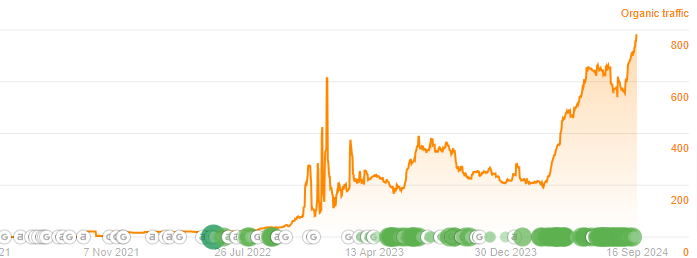
How Much Should You Expect to Pay for SEO?
So, if cheap SEO packages are likely scams, what should you realistically expect to pay for quality SEO services? The answer depends on the size of your practice and the scope of your needs.
For a small therapy practice, you can handle many SEO basics yourself with a bit of learning and effort. Costs might include:
- Keyword research tool subscription: $50-100/month
- SEO plugin for your website: $0-100/year
- Time spent creating content and optimizing your site: varies
If you choose to hire an SEO professional, a realistic budget for the initial setup and optimization of a small practice site would be $5,000-7,000. This would typically include:
- In-depth keyword research and competitor analysis
- On-page optimization of core pages (homepage, service pages, contact page, etc.)
- Technical SEO audit and fixes (site speed, mobile responsiveness, etc.)
- Creation of foundational content assets (blog posts, guides, etc.)
- Local SEO setup (Google My Business optimization, local citations, etc.)
- Initial link building outreach and acquisitions
Larger practices or those in highly competitive markets may need to budget $5,000-10,000 per month for ongoing SEO services to maintain and improve their rankings. This could include:
- Continuous content creation (multiple blog posts/articles per month)
- Ongoing link building campaigns
- Regular technical audits and optimization
- Detailed monthly reporting and analysis
- Continuous keyword research and targeting recommendations
While these costs may seem high, it’s important to remember that SEO is an investment. The traffic and leads generated from high search rankings can more than makeup for the upfront costs over time. And unlike paid advertising, the results from SEO work compound and can last long after the initial optimization.
Of course, the best approach for your practice will depend on your unique goals, audience, and resources. But by understanding what realistic SEO services look like and being aware of common scams, you can make an informed decision and invest your marketing budget wisely.
SEO Myths and Outdated Practices to Avoid
While implementing SEO best practices is important, it’s also crucial to know what not to do. Here are some common SEO myths and outdated tactics to steer clear of:
- Keyword stuffing: Repeating keywords unnecessarily in an attempt to rank higher. This comes across as spammy to both Google and readers.
- Buying links: Purchasing backlinks from link farms or PBNs (private blog networks). Google’s algorithm is good at spotting these unnatural links.
- Exact match domains: Choosing a domain name like besttherapistbirmingham.com used to be an advantage, but Google has cracked down on this practice.
- Quantity over quality: Churning out short, thin content just to have a certain number of pages. It’s better to have fewer pages with exceptional content.
- Cloaking: Showing different content or URLs to users versus search engines. A deceptive tactic that can get your site penalized.
- Article spinning: Taking an existing piece of content and rearranging the words to create “new” pages.
- Neglecting mobile optimization: More searches happen on mobile than desktop now. A mobile-friendly, responsive site is a must.
Instead of trying to cut corners or trick search engines, focus on providing an excellent user experience with thoughtful, valuable content and a helpful website.
SEO Resources Online For Therapists
SEO Guides and Tutorials
- Google’s Search Engine Optimization (SEO) Starter Guide – Official guide from Google.
- Moz Beginner’s Guide to SEO – A thorough introduction to SEO basics.
- Ahrefs’ SEO Guide – In-depth SEO guide with actionable advice.
- Neil Patel’s SEO Guide – Comprehensive guide by a well-known SEO expert.
- Backlinko’s SEO Guide – Detailed SEO strategies and tips.
Keyword Research Tools
- Google Keyword Planner – Free tool from Google for keyword research.
- Ahrefs Keywords Explorer – Powerful keyword research tool.
- SEMrush – Comprehensive SEO and keyword research tool.
- Ubersuggest – Keyword research and SEO analysis tool.
- Keyword Tool – Useful for generating keyword ideas.
Content Optimization
- Yoast SEO Plugin – Popular plugin for WordPress SEO.
- Screaming Frog SEO Spider – Tool for analyzing website content and structure.
- Grammarly – Writing tool for improving content quality.
- Hemingway Editor – Tool for enhancing readability of content.
- Surfer SEO – Content optimization tool based on SERP analysis.
Local SEO Resources
- Google My Business – Essential for local business listings.
- Moz Local – Tool for managing local SEO and citations.
- BrightLocal – Local SEO tools and services.
- Yext – Local listing management tool.
- Whitespark – Local SEO tools and services.
Technical SEO
- Google Search Console – Tool for monitoring site performance and indexing.
- GTmetrix – Tool for analyzing site speed and performance.
- PageSpeed Insights – Google’s tool for evaluating page speed.
- XML Sitemaps Generator – Tool for creating XML sitemaps.
- Schema Markup Generator – Tool for implementing structured data.
Link Building and Analysis
- Ahrefs Backlink Checker – Tool for analyzing backlinks.
- Majestic SEO – Backlink analysis and SEO tool.
- BuzzSumo – Tool for finding popular content and link opportunities.
- Broken Link Checker – Tool for identifying broken links on your site.
- Monitor Backlinks – Tool for tracking backlinks and SEO performance.
Analytics and Tracking
- Google Analytics – Essential for tracking website performance and user behavior.
- Hotjar – Tool for heatmaps and user behavior analysis.
- Crazy Egg – Visual analytics tool for understanding user interactions.
- Clicky – Real-time web analytics tool.
- Matomo – Open-source analytics platform.
Community and Forums
- SEO Chat – Community forum for SEO professionals.
- Warrior Forum – Forum for digital marketing and SEO discussions.
- Reddit SEO Community – Subreddit for SEO-related discussions.
- DigitalPoint Forums – Community forum for digital marketing and SEO topics.
- Black Hat World – Forum for advanced SEO techniques and strategies.
Other Useful Tools
- Canva – Tool for creating engaging visuals for your site and social media.
- Hootsuite – Social media management tool to enhance your online presence.
- Buffer – Social media scheduling and analytics tool.
- AnswerThePublic – Tool for discovering popular questions and topics.
- Contently – Platform for content creation and strategy.



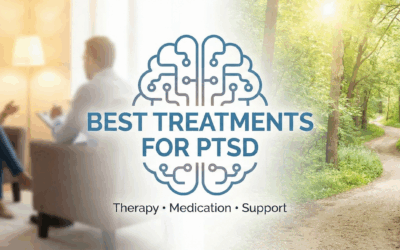

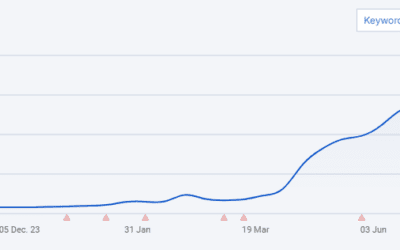



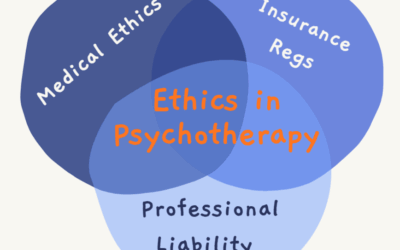


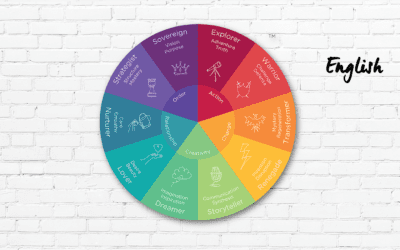













0 Comments